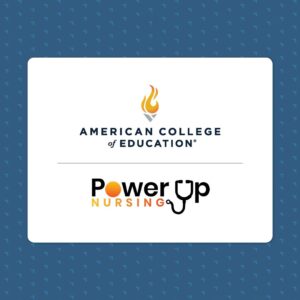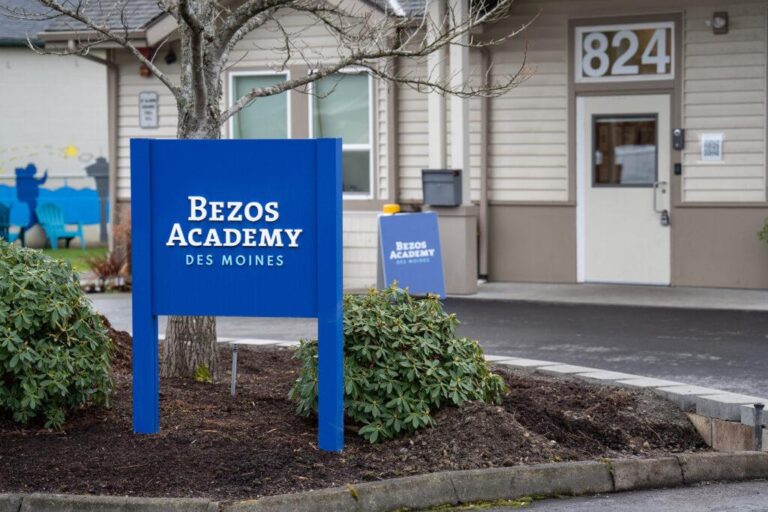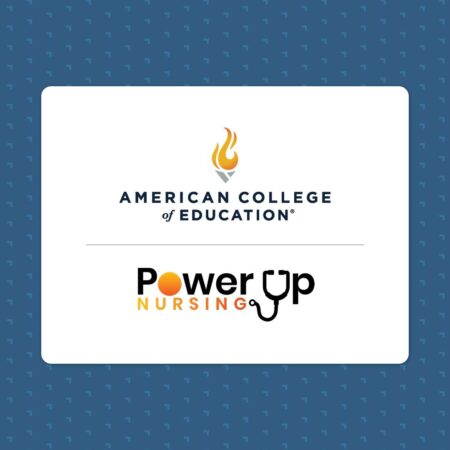The United States is grappling with a childcare crisis that has left millions of families struggling to balance work and family life. As childcare costs soar and access to quality early education remains limited, the pressure on parents continues to mount. In a surprising twist, Amazon founder Jeff Bezos is stepping into the fray with a bold investment: the Bezos Academy. This initiative aims to redefine early childhood education by providing tuition-free, high-quality preschool options to underserved communities. As the nation looks for sustainable solutions to its childcare challenges, Bezos’ gamble on the Bezos Academy could signal a new chapter in how America approaches early learning.
The Growing Childcare Shortage Straining American Families
Across the United States, families grapple with a growing scarcity of affordable and quality childcare, creating a ripple effect that impacts workforce participation and early childhood development. Many parents, particularly those in low-income communities, find themselves caught between high costs and limited availability, forcing difficult choices between career and caregiving. The strain is evident as waiting lists for daycare centers stretch on for months, and less than 20% of licensed providers in many states accept subsidized care. This persistent shortage costs the economy billions annually in productivity losses and hinders children’s readiness for school.
In response to these challenges, innovative efforts are emerging to fill the gap. Notably, Jeff Bezos’s Bezos Academy targets underserved neighborhoods with tuition-free, quality preschool options modeled on Montessori principles. This initiative aims to:
- Expand access to early education for low-income families
- Reduce pressure on working parents balancing job and childcare demands
- Improve outcomes by prioritizing social-emotional learning and cognitive development
| Impact Area | Before Bezos Academy | Projected After Expansion |
|---|---|---|
| Waiting List Length | 6+ Months | 3 Months |
| Parental Employment Rate | 68% | 82% |
| Access to Quality Preschool | 31% | 55% |
Jeff Bezos Steps Into Early Childhood Education with Bezos Academy
In response to the escalating childcare shortage across the United States, Jeff Bezos has intensified his commitment to early childhood education through the expansion of Bezos Academy. This nonprofit initiative, strategically positioned in underserved communities, offers tuition-free, high-quality preschool education aimed at narrowing the opportunity gap for thousands of children. By combining innovative pedagogy with state-of-the-art facilities, Bezos Academy seeks to foster cognitive and social development during the critical early years, providing a scalable model for education reform at a national level.
Key features of the Bezos Academy initiative include:
- Tuition-Free Access: Eliminating financial barriers for families.
- Comprehensive Curriculum: Emphasizing early literacy, math, and social skills.
- Professional Educators: Trained teachers focusing on individualized attention.
- Community Engagement: Collaborations with local organizations to support families.
| Year | Number of Campuses | Children Served |
|---|---|---|
| 2021 | 1 | 40 |
| 2023 | 5 | 200+ |
| 2025 (Projected) | 15 | 600+ |
How Bezos Academy Aims to Set a New Standard for Preschool Access
Bezos Academy is stepping into a space long overlooked by private enterprise: affordable, high-quality preschool education. With a mission to serve underserved communities, the academy plans to dismantle traditional barriers such as cost and location that have historically limited access. Its model emphasizes individualized learning and development, offering a low teacher-to-student ratio, nutritious meals, and wraparound support services, building a blueprint for what early childhood education could look like across the nation.
To illustrate the Academy’s ambitious reach, here’s a glance at its key features:
- Annual Tuition: Approximately $8,500, significantly below average private preschool costs.
- Class Size: Capped at 16 students for enhanced attention.
- Curriculum Focus: Early literacy, STEM basics, social-emotional learning.
- Community Impact: Intended to serve predominantly low-income families.
| Feature | Bezos Academy | Typical Private Preschool |
|---|---|---|
| Tuition | $8,500/year | $15,000/year |
| Student-Teacher Ratio | 8:1 | 12:1 |
| Accessibility Focus | Low-income Communities | General Population |
| Meal Program | Included | Optional/Not Included |
Policy Recommendations to Address the National Childcare Emergency
To confront the escalating childcare crisis, policymakers must prioritize sustainable funding mechanisms that ensure accessibility and affordability for all families. This includes expanding federal and state subsidies, incentivizing private investment in early childhood education infrastructure, and enforcing workforce protections for childcare providers to improve retention and quality of care. Key actions to consider:
- Implementing a sliding scale subsidy system based on household income
- Offering grants and tax credits to small childcare businesses
- Increasing wages and training opportunities for childcare professionals
- Establishing public-private partnerships to scale quality programs nationwide
Complementary to funding, policy frameworks should promote inclusivity and innovation by embracing alternative models such as nonprofit academies and employer-sponsored centers. Amazon’s foray with Bezos Academy highlights the potential of leveraging corporate resources to create high-quality early learning environments at scale. The table below summarizes the projected impact of different policy initiatives over a five-year horizon:
| Policy Initiative | Projected Enrollment Increase | Cost Reduction for Families | Provider Retention Rate |
|---|---|---|---|
| Expanded Subsidies | +25% | 30% lower | +15% |
| Tax Incentives for Providers | +18% | 20% lower | +22% |
| Public-Private Partnerships | +35% | 25% lower | +20% |
| Employer-Sponsored Centers | +15% | 15% lower | +18% |
The Conclusion
As the United States grapples with a persistent childcare crisis that affects millions of families and the broader economy, Jeff Bezos’s investment in Bezos Academy marks a noteworthy development. By channeling Amazon’s founder’s vast resources into early childhood education, this initiative could signal a new model for addressing systemic gaps in affordable, high-quality childcare. While it remains to be seen how scalable and accessible the Bezos Academy approach will become, Bezos’s involvement underscores the growing recognition that solving the childcare challenge requires bold innovation and substantial private sector engagement. As this story unfolds, policymakers, educators, and parents alike will be watching closely to see if this bet pays off—for families across the nation facing a critical need.





